Lillian Lamunu and her husband are both out of work and are struggling to look after their six children who all have Sickle Cell Disease. Lillian is worried that if she doesn’t do something soon she might end up having another baby.
She spoke to one of RHU’s clinicians who told her that they saw she had a lot of problems and a lot of children. The clinician suggested that she went and got family planning but Lillian wanted something more permanent.
“I want them to remove my tube. Let me remain with these six children. Because my children were all born with Sickle Cell Disease and keeping them is very difficult,” said Lillian.
She opted for tubal ligation but her husband was yet to grant her permission to undergo the surgery so that she stops giving birth. “I know that he might be convinced but I don’t know when” Lillian added.
One Ugandan commentator said that in Gulu like the rest of Uganda, contraceptive use was still too low and their uptake was still largely driven by male dominated culture and patriarchal values.
Lillian said that it was very expensive looking after her six children who all need daily medication. “I don’t have enough money for keeping them,” she said. Much of her time is spent in hospital with her sick children so she says that she is unable to get a job.
Follow a day in the life of our team and clients in Gulu, Uganda
- 7am: The team prepare for the long day ahead
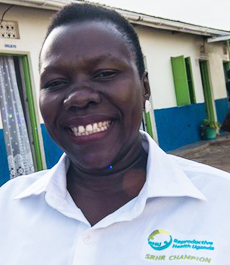
"Every year tens of thousands of Ugandans come to our clinic. Everyone is welcome. Here are just a few of the people that we served in one day last month."
- 8am: Nancy, 19, becomes a volunteer
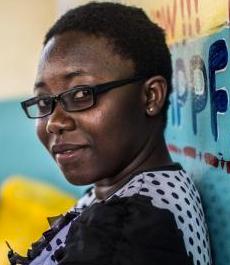
"I was suffering but when I came here, I was treated and I got better. Now I'm inspired to volunteer here"
- 9am: Monica, 25, a sex worker's story
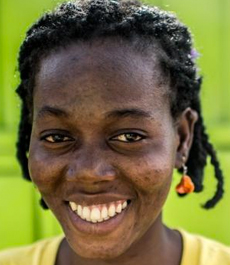
"I am sex working. I came here for Hepatitis B testing and also counselling. I have so many personal problems, but here….they’re so caring."
- 10am: Jane, 23, saved by family planning
"After multiple miscarriages, family planning here has helped me a lot. I'm glad we've been able to space the number of children we've had. I am not growing old, I am fresh."
- 11am: Vicky, handling disabilities
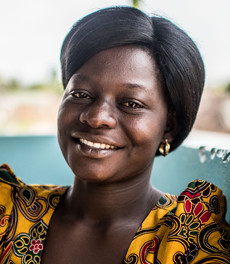
"I'm deaf so accessing services is hard, but here they really try to speak in sign language."
- 12pm: Dorcus, first time patient

"This is the first time I've ever come here, I like the service. They give good counselling so I recommend coming."
- 1pm: Christine, 45, a grandmother's tale of living with HIV

"I am living with HIV and had HPV. They treated me and now I'm free of cervical cancer."
- 2pm: Lilian, struggling mother of six with sickle cell
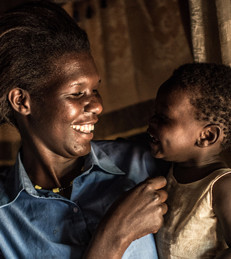
" I have sickle cell disease and so do all my children. I want to have my tube removed so that I don't get pregnant again but I don't know if my husband will allow it."
- 3pm: Brenda and Francis get fertility treatments
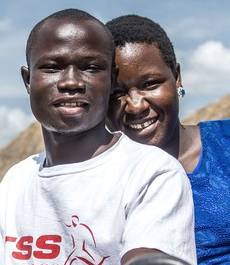
"Fertility treatment is a sensitive issue in Uganda but they help us a lot and we get proper treatment."
- 4pm: Joyce, 25, repected regardless of her disability
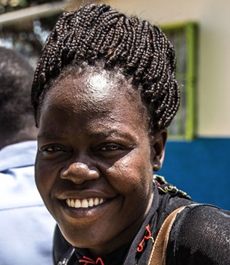
"I realised that at this place they don't segregate. Us people with disabilities have challenges at the main hospitals. You go there, people around look at you as if you are not a human being and you don't fall sick."
- 5pm: Mobile clinic provides outreach services to remote villages
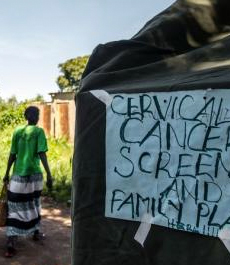
"Our outreach to remote communities is a 'one-stop-centre'. We give family planning, vaccines for HPV, malaria, and Hepatitis B, HIV testing and more."
- 22pm: Still giving the last client our very best
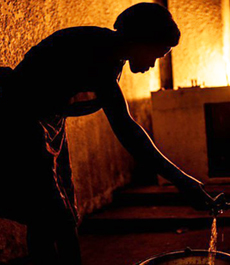
"Together, we have great teamwork. Sometimes we're still working up to 10pm because we never chase out our clients. We’ll never close the place when we have a client inside. People come when they have no hope."
when
country
Uganda
Subject
Contraception, Gender equality, Maternal Healthcare
Related Member Association
Reproductive Health Uganda







